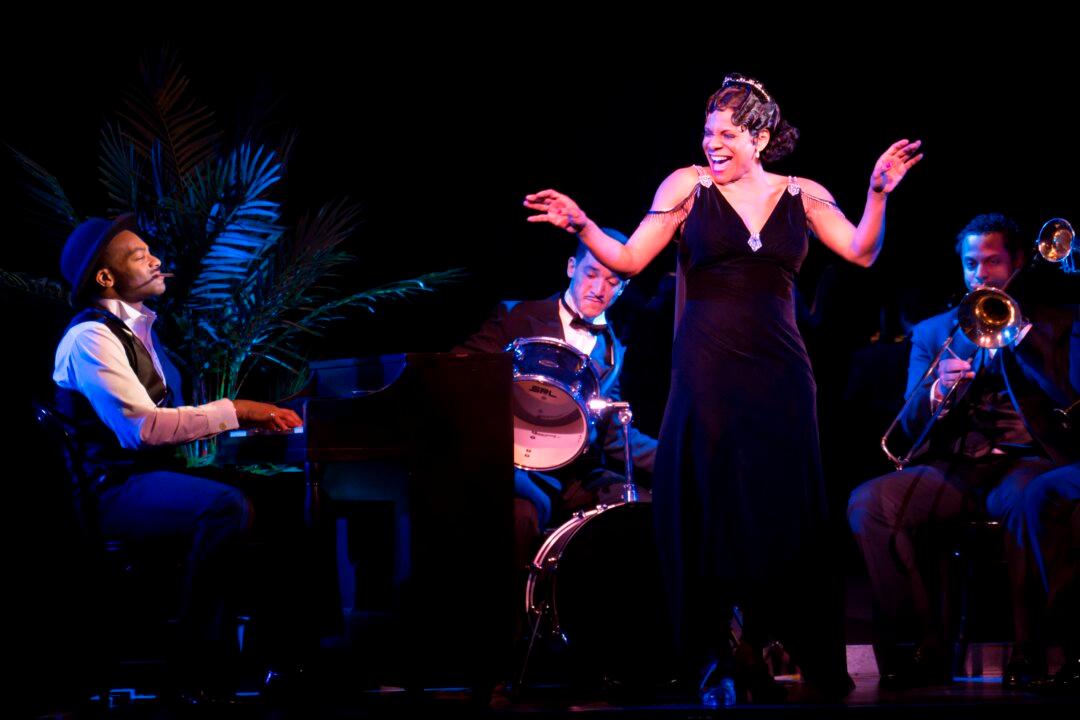NEW YORK—When telling a story for entertainment purposes, defining and limiting the story is crucial. Sadly, George C. Wolfe, book writer and director of “Shuffle Along or the Making of the Musical Sensation of 1921 and All That Followed,” doesn’t seem to have figured that out. The result is that this very impressive work ends up losing its heart.
“Shuffle Along,” the first Broadway show created by and featuring an entirely African-American company, had its genesis with the vaudeville team of F.E. Miller (Brian Stokes Mitchell) and Aubrey Lyles (Billy Porter).

(L–R) Vaudevillians F.E. Miller (Brian Stokes Mitchell) and Aubrey Lyles (Billy Porter) and songwriters Noble Sissle (Joshua Henry) and Eubie Blake (Brandon Victor Dixon) together created the smash hit "Shuffle Along." Julieta Cervantes





